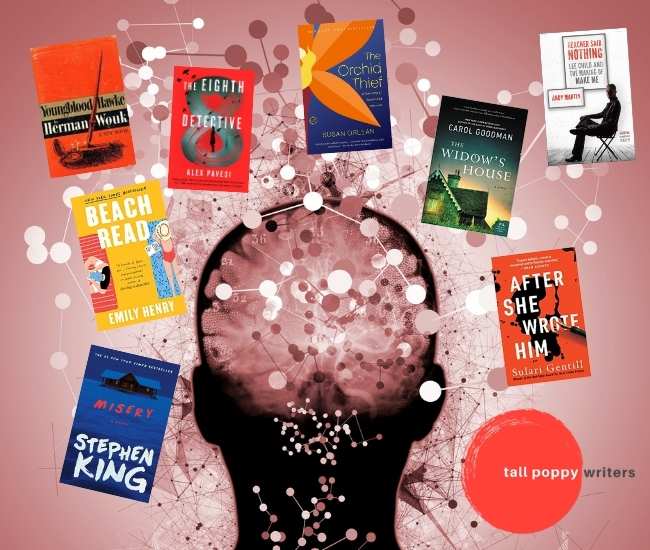https://booktrib.com/wp-content/uploads/2020/10/meta-fiction-feat..jpg
The question came to me in my admiration of Truman Capote’s In Cold Blood: how does someone write novelistic nonfiction when many of the main characters are dead? How can you write a true-crime novel if you don’t know the truth? And how can you ever find it?
I’ll write a book about that, I decided. I would call it Trust Me.
It sounded like such a cool idea. Until I started writing it. Oh. No. A book about someone writing a book? When my suspense genre calls for action, and page-turning, and clashing motivations and gaslighting and manipulation and deception — what did I have? Someone sitting at a desk, writing. Oh, no.
But did you ever see the movie The Man Who Invented Christmas? I know I’m pushing the season. But it is hilariously funny, a complete writers’ movie (based on a book by Les Standiford), about how Charles Dickens came up with the idea for his now-beloved A Christmas Carol. The movie shows how Dickens, rocked back on his heels after the disaster of Bleak House and scorned and derided by the likes of William Thackeray, comes on this idea to write a book about a night of redemption. The ghost of Christmas past, and of Christmas present. And possibly Christmas future.
He struggles to come up with the character, with a plot, with a story. But every time he gets a good idea — someone interrupts him. The housekeeper, or the children, or the pushy interior designer. The nanny has good ideas, at least. But the publisher is dismissive, the public is insistent, and his brain, although wanting to work, is trapped by Dickens’ past and pressured by finances. Does that sound true enough, writers?
Or how about the Spike Jonze film, Adaptation — talk about a book about a person writing a book! Just go watch them both. (Not right now. But after this.)
But the process — the glorious, magical process of writing a book — well, even if it’s not as riveting as a car chase or as explosive as an explosion, it can be a magical evolution of thought and imagination.
So why not write about that?
Trust Me turned out to be a cat-and-mouse thriller. The reader is not quite sure whether the subject is telling the truth — or simply her version of it. And whether the author of the book-in-the-book is searching for the truth — or simply wants a finished product. As the author wonders — might it be satisfactory to readers if the true-crime book is simply true enough?
It’s a tightrope, and in any case, a successful book about writing a book requires a thoughtful, imaginative reader as well as writer. But the process of storytelling is something unique to human beings. So what could be better than a book that explores that storytelling journey?
If you are, as I am, fascinated by the writers’ mind, here are some books that offer a captivating look into that unique place.
At every writer event I do, someone in the audience asks me about my writing process. I love to answer that question. And these books offer even more insights — for better or worse — into how the writing brain works. And that’s a scary-good subject.
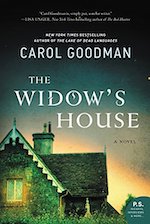
The Widow's House by Carol Goodman
Okay, so this is really about not writing, which as any author knows is just as much a part of writing as anything else. Carol Goodman won the Mary Higgins Clark award for this one — and well-deserved. A couple takes a caretaker’s job at Riven House (what could go wrong with a place named that?). It’s the home of their old college writing professor. Husband Jess’s career as an author has stalled, and wife Clare’s was dashed when her husband made it big. Can Riven House bring them back to the page? Ha. That book would not have been as riveting as this one.
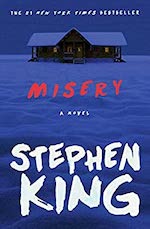
Misery by Stephen King
I don’t even want to talk about this, really. Because Stephen King has written the most terrifying of beware-of-success stories. A famous author with a devoted following has a bit of an accident (understatement) and is nursed back to health buy his, ahem, rescuer. She turned out to be a devoted fan. One who wants him to bring the beloved character he once wrote about — then killed — back to life. She really really wants him to. Trust me, this is not a good thing. And, writers, a book not for the faint of heart.
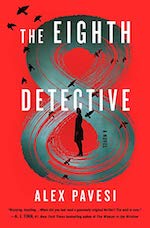
The Eighth Detective by Alex Pavesi
Is it dangerous to try to understand how crime writers think? That’s the exact job of an editor. In this cleverly structured “detective” story, a mathematician has written a book of short stories, each one illustrating a rule of mystery writing. When an editor arrives to chat with him about new editions, she realizes there may be more in the short stories than rules. So this is Alex Pavesi writing a book about someone working on a book about how to write a book of short stories. And it’s partly told in the short stories. Get it?
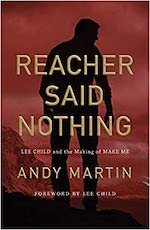
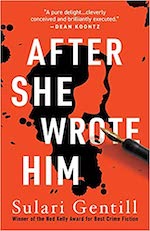
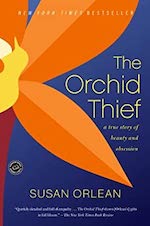
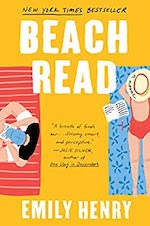
Beach Read by Emily Henry
I love this book beyond all description. The brave Andy Martin hung out with mega-brilliant Lee Child for the entire year as Child wrote his Jack Reacher thriller Make Me. Yeah, you think — this can’t be good. Sitting in a room watching a guy write, and asking him questions about stuff like commas and word choice? It’s gotta be boring. Wrong. It’s fascinating, enlightening, instructive and inspirational. Readers and writers, this is not to be missed.
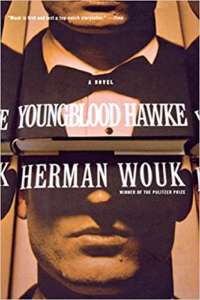
Youngblood Hawke by Herman Wouk
I bet someone once asked Sulari Gentill whether her fictional characters “seem real,” and if they “come to life” in her novels. I bet she decided to write a mystery about that. This super-twisty super-meta mind-bender of a novel will have readers and writers looking at their characters — and themselves — in a whole new way. It’ll even have you questioning everything you do.
Susan Orlean gives us total immersion storytelling. A journalist explores her subject — an orchid thief — in this obsessive and compelling deep dive into the world of orchids. But yeah, it’s not just about flowers, and Orlean’s classic — which became the movie Adaptation, a writer must-see — is a spellbinding example of what happens when a (nonfiction) storyteller gets ensnared by her story.
The solution to writer’s block? Get someone else to write your book, and you write theirs for them, and then the pressure is off. In an absolutely entertaining meet-cute and write-cute story, Emily Henry explores how our emotions shape the writing process. It’s witty and charming and then — wham. This novel about writing and the stories we tell ourselves is just as wonderful on the couch as it would be on the beach. (Read BookTrib’s review here.)
“Have you ever known a famous man before he became famous?” That’s the first line of the riveting — and, though published in 1962, still riveting — Youngblood Hawke. Herman Wouk’s irresistible voice and storytelling power reveal the adventures of an unlikely debut novelist who comes to New York and sells his first novel to wild success. (He first haggles over an unheard-of $5,000 advance: “ten times the going advance for a first novel,” says the editor.) It’s like Bonfire of the Vanities for the publishing world of that era. Or maybe Bonfire is like Youngblood Hawke. If you missed this, it’s still terrific.
